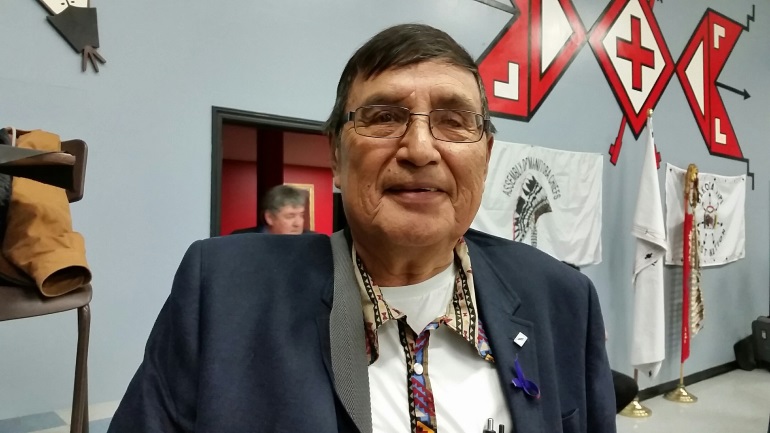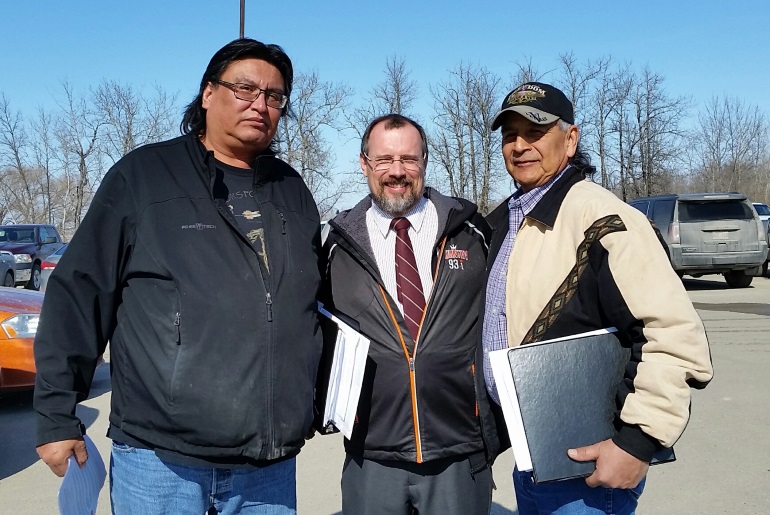The Joint Chiefs Assembly adjourned today after three days of meetings with the First Nations chiefs from across Manitoba.

Grand Chief Derek Nepinak says it ended without a quorum today.
"The meeting today kind of ended in such a way that we weren't able to reach quorum. There's many reasons why that happens. Sometimes it's difficult to ask leadership to give three days to the assembly, where there are so many agendas that our communities are dealing with on a regular basis. We weren't able to reach quorum, but we do have a fairly significant body of work that we must now follow through with. Our plate is completely full of work, particularly with the questions areound the Indian Act, and where do we go from here. so, we've got work that's going to carry us right through the rest of the year."
Nepinak adds a lot of the work ahead of him will be to clarify the historic resolution regarding the Assembly's decision to see the abolishment of the Indian Act in Canada.
"I think that some of the concerns around the Indian Act, and what it would mean to abolish the Indian Act, are putting a lot of poeople kind of on edge, because they're not sure what the implicaitons are. And I'm going to do my part to make sure that our communities receive the best information about what that would mean, including revealing the true nature of the Indian Act, and what it's done to our communities, and our people, and our families. So, we're going to do the best we can to alleviate some of those concerns about what we did here the last couple of days. We definitely, I think, did some historic work in the last two days, particulary on the Indian Act question. I think time will tell how significant this history-making decision was."
Dakota Tipi chief David Pashé shares an outline.
"These past three days have been very, very interesting, and very sad today that we didn't get quorum. But we did discuss a lot of issues, and these A.M.C. gatherings like this are similar to the Manitoba Legislature days when they sit in the office. We take these three days and discuss matters that are important to the 63 nations in Manitoba."

Pashé adds they discussed health issues for all the communities, and a lot of community members, chief and councils, proxies got up and spoke about the downfalls of the health system and funding that are being given to the communities. he says they also addresseed suicde concerns.
"And we just take the matter of suicides, for example, that's happening in the north right now. And the chiefs are asking the health people here to see if they could give us more money, even if just for a suicide hotline. And they were not able to give any assurances today about it. But I noticed in the news from the province, they're going to meet with the communities that are involved, and try and help them. So, at least, even though the province doesn't look after the health, they're trying to do something -- we're a federal responsibility. So, things like that are being discussed here."
Pashé notes other issues raised this week.
"We even discussed things like policing, and the upcoming RCMP review for contracts in native communities. So, those are the kind of things that lack in the native communities. Even though today we didn't get a quorum, it was still very important. We all had our chance to air our grievances. That's a load of our chests. At least we got a chance to unload it (laughs). "
Craig Blacksmith stood in proxy for Dakota Plains First Nation and chief Orville Smoke. Blacksmith shares his perspective.
"Well, the last resolution that was passed was that abolishment (of the Indian Act). So, there are other resolutions on the table, but they'll all be taken care of once those issues are addressed. There's a federal budget coming out and there's a lot of hope that things will be better, but one of our communities, Cross Lake, is under a state of emergency right now because they had four youth suicides in the last couple of weeks. I was reading a report saying there's 140 people that either attempted or thought about it. Those type of conditions are just not acceptable in this country. Canada is supposed to be a champion of human rights worldwide, and yet they treat us like that. It's not right. Passing the resolution for the abolishment of the Indian Act will hopefully trigger a whole set of talks. The people in there -- the chiefs -- are tired of this. What's the government waiting for? Of all of us to die? And that's what it seems like is happening. It's not right. So, there are positive feelings leaving that room. So, hopefully something happens"












